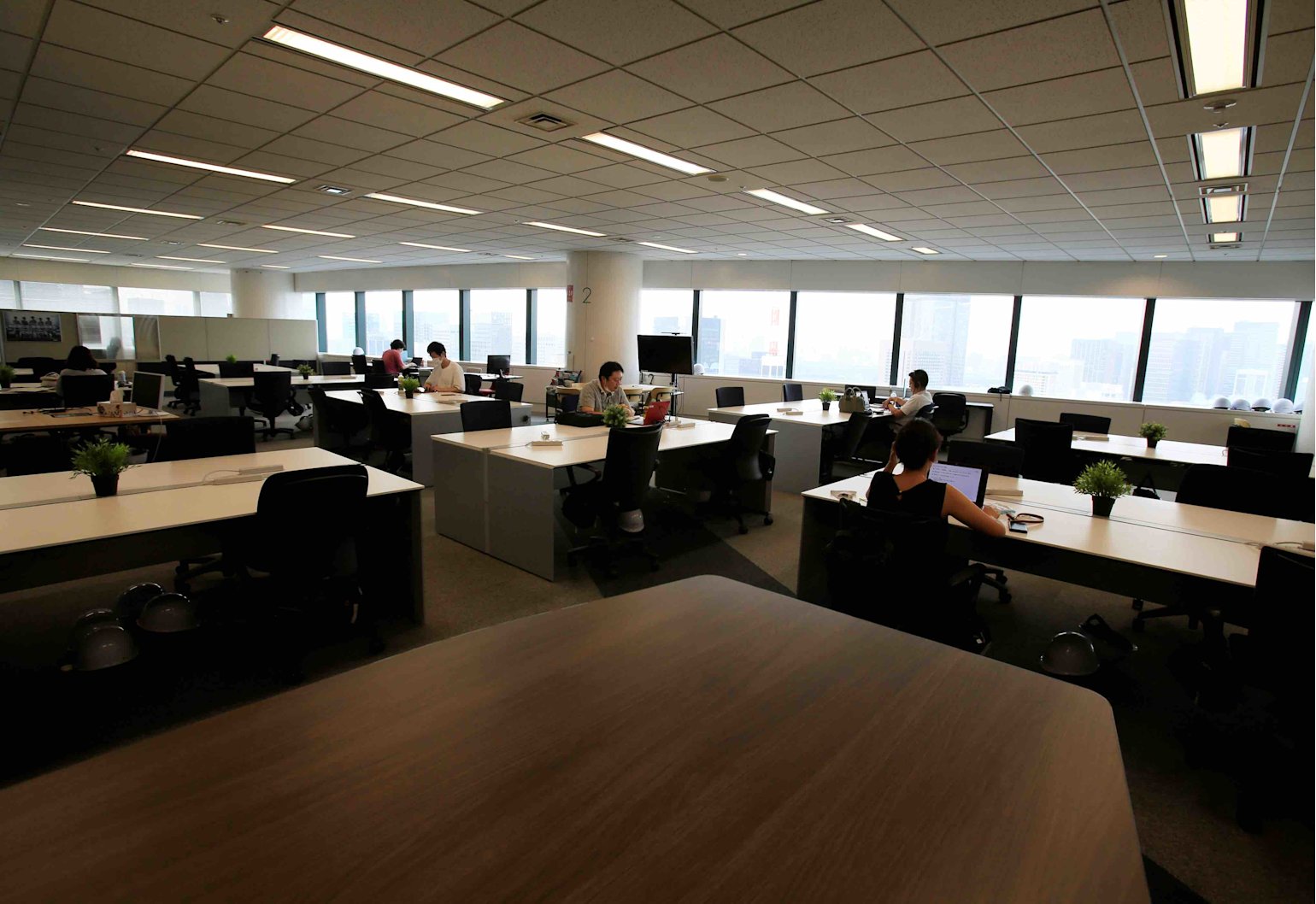Coronavirus (COVID-19) Updates
For the latest COVID-19 information and updates from Qatar Foundation, please visit our Statements page

COVID-19 has led to huge changes in the way we work, with homes becoming offices.
Image source: USA Today Network, via ReutersDr. Susan L. Karamanian, Dean, College of Law, Hamad Bin Khalifa University, on how the law has responded to a pandemic-induced transformation of employment practices.
Not too long ago, work largely occurred at the office or in some other communal space. Face-to-face meetings and sit-down lunches or conversations with colleagues over coffee were the norm.
COVID-19 put that routine on hold. With its arrival came the state-ordered lockdown, which meant the closure of most collective physical spaces.
For many, however, work continued. Instead of the office, we have the private home, open for business 24/7, amid family members and the background of the television, class sessions, video games, and mobile phones. Instead of face-to-face meetings and chit-chats, we have platforms like Zoom, Teams, or Webex.
Eventually, we all may return to the workplace and our daily routine, and many of us are already in a phased-in or close to full return. We dutifully show our Ehteraz upon arrival showing that we have been vaccinated, get our temperatures checked, wear our masks, and keep our distance.
Regardless of where and how we work after the virus, the concept of the office and even of work have been fundamentally transformed.
How do we define the workday and the associated concept of leave when we are constantly online – and, in many instances, expected to be so?

Dr. Susan L. Karamanian
Has the law kept up with these developments? For example, what does it mean to be ‘at work’ when work occurs in your home at the kitchen table? How do we define the workday and the associated concept of leave when we are constantly online – and, in many instances, expected to be so? Or, as another example, what is the employer’s obligation to provide technical support or internet security in the home? And when we eventually return to the office, what are the obligations of the employer to ensure a safe workplace?
In a colloquium this past academic year, HBKU’s College of Law teamed up with the Qatar Financial Centre Employment Standards Office to discuss various aspects of these developments in Qatar, whose response has had significant legal and policy dimensions.
Flexibility in the labor market is essential given the climate of business uncertainty due to the pandemic.”
On the legal front, under Law No. 17 of 2020, Qatar introduced a non-discriminatory minimum wage, including a minimum allocation for accommodation expenses and food. According to Alix Nasri of the International Labour Organization, who spoke at the colloquium, this measure is timely as having a safe and clean home, along with proper nourishment, is critical to tackling the pandemic. Also, under Decree Law No. 18 of 2020 and Decree Law No. 19 of 2020, Qatar’s labor law was amended to remove the requirement of a non-objection certificate for a worker to transfer jobs within the country and to ease the entry and exit of expatriates. Flexibility in the labor market is essential given the climate of business uncertainty due to the pandemic.
Essential to societal welfare was the official statement of Qatar’s Ministry of Administrative Development, Labor and Social Affairs (MADLSA), affirming that employers were to pay basic salaries and allowances to workers in businesses that continued. This was a profound announcement as it signaled that, lockdown aside, business would continue; in other words, work outside of the office was still work. This fact was further confirmed by the pronouncement of the Council of Ministers, encouraging teleworking, with MADLSA setting out guidelines for the establishment of working hours, overtime, management support, equipment and supplies, and safety and health.
As to business that had stopped, workers could take unpaid leave, apply their annual leave or cutback on work hours, yet the business could not eliminate food and housing, again essential to maintaining physical conditions to minimize the spread of the virus. The directive of His Highness Sheikh Tamim bin Hamad Al Thani, the Amir of Qatar, which announced sweeping financial measures to support the private sector, proved critical to minimizing complete business stoppage while also evidencing a humane response to a challenging situation.
Of additional note, workers in isolation or in quarantine were to be paid. In other words, having those exposed to the virus segregated from others is a worthy objective that benefits society overall, and it should not be at the cost to the exposed individual.
The world of work, as we once knew it, has fundamentally changed. For various reasons, removing the association of work with a dedicated office is not completely undesirable.
The world of work, as we once knew it, has fundamentally changed. For various reasons, removing the association of work with a dedicated office is not completely undesirable. Many employers and employees report that working at home has led to enhanced productivity. Parents have had the chance to bond more with their children. With fewer people in their cars going to and from work, harmful emissions fell.
Yet, on the other hand, sustained and meaningful human interaction is critical to our existence and, in many instances, to work itself. And for working women in particular, the dual responsibility of managing the entirety of the home while working from the home has imposed substantial burdens. The Deputy Executive Director of the United Nations Entity for Gender Equality and the Empowerment of Women, Anita Bhatia, has noted that “many women are actually not going back to work.” Regrettably, jobs data in the US confirms her observation.
Finally, one valuable workplace lesson from the past year is that the legal regime for the future of the workplace must be flexible and it should be informed by a variety of standards, including health and safety, economic, and social. In this regard, the approach of Qatar, in which the Ministry of Public Health has worked closely with MADLSA, other government ministries, and the business community has proven critical.

Japanese workers based in an office where the majority of staff work remotely. Image source: Akira Tomoshige, via Reuters
Dr. Susan Karamanian is dean of the College of Law at Hamad Bin Khalifa University. This article is submitted on behalf of the author by the HBKU Communications Directorate. The views expressed are the author’s own and do not necessarily reflect the University’s official stance.

